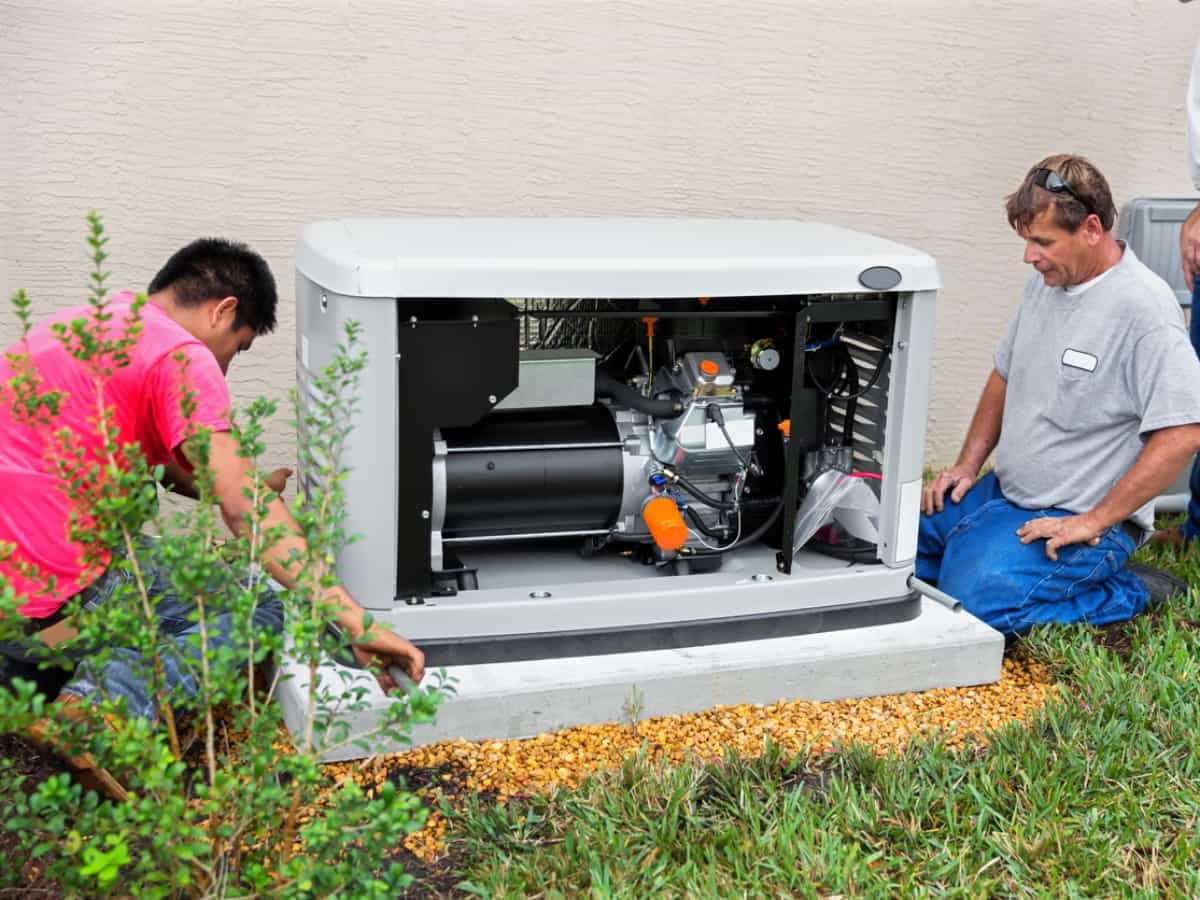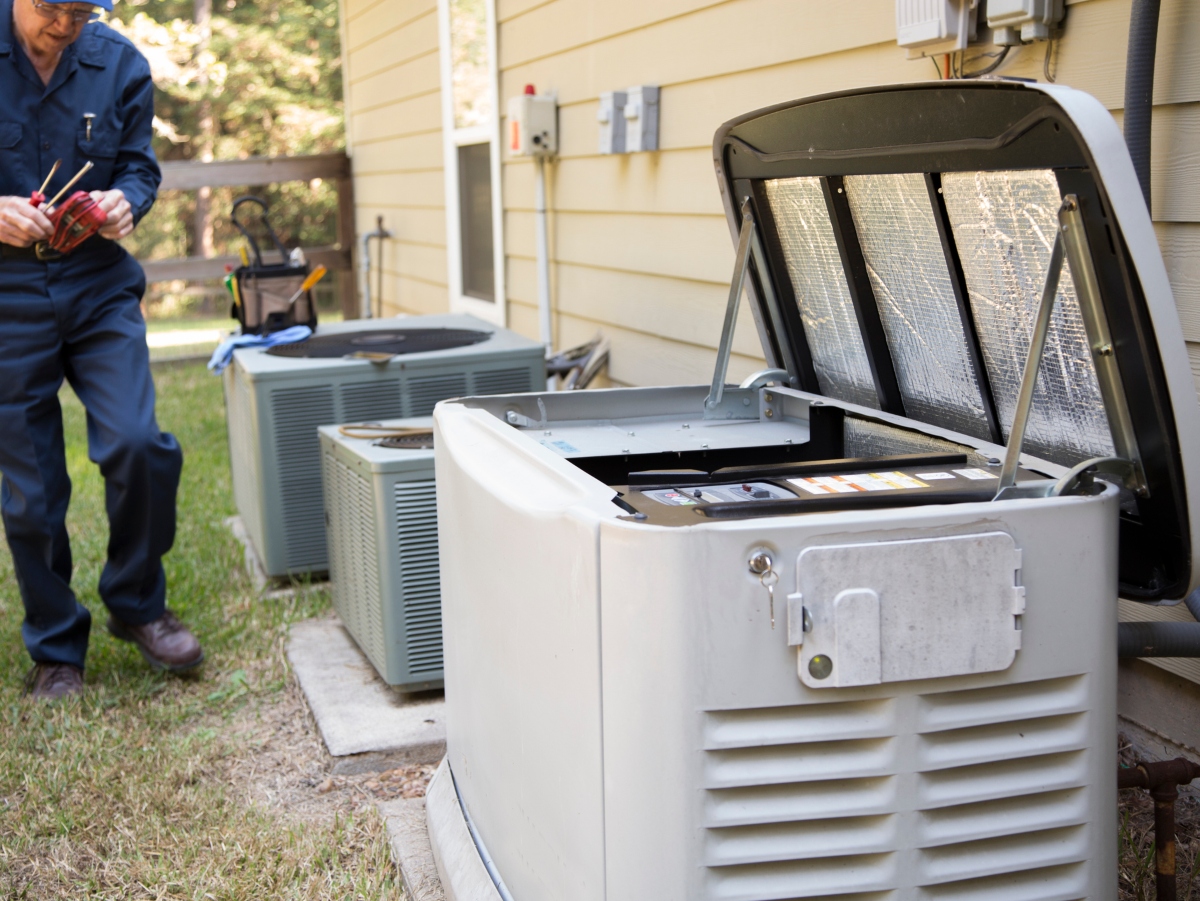No matter how large or small your home may be or where it’s located, buying a home generator is an excellent way to protect your family and loved ones. Given that the world has become more unstable in the past few years, many of us are on high alert and searching for the best ways to stay safe. However, some people resist purchasing home generators because they fear the costs. With that in mind, here is a closer look at the total breakdown of a home generator cost.
Discover Energy Audits with Solar Energy and ONIT Home
Try our Free Energy Audit to make sure your home is performing at optimum energy efficiency. We’ll inspect every nook and cranny of your home to make sure it’s best serving your needs. We’ll also give you tips on lowering your energy bills, conserving energy, and creating a more efficient space. To learn more about how we can help you maintain a top performing home, visit us online to get started!
What is a Home Generator?
A home generator is a backup power supply that can be used to provide your home with electricity in the case of an emergency. They are most often used to power homes that are dealing with a temporary power outage caused by manmade or natural disasters. They work by changing mechanical energy into electrical energy.
Types of Home Generators
Home generators continue to become more and more advanced and useful. Also, in order to have the most useful generator, you must take the time to research them and find the best one for your needs. However, there are several types of home generators on the market, such as:
Inverter Generators
On the one hand, standard generators produce electricity using a single-phase but cannot keep a steady flow. On the other hand, inverter generators create electricity in three phases, creating an alternating current (AC) which is high frequency. The AC is then inverted to a direct current (DC) and is then inverted into a stable AC output.
This three-phase approach makes it possible for these generators to create clean energy, which is just energy that stays stable while in use. This makes it ideal to be used for things such as electronics. Also, many people enjoy this type of generator because it is quieter than other versions.
Best Uses: Protecting various electronics from power surges.
Portable Generators
Portable generators are small generators that are easy to travel with. These generators are usually fueled by propane, gas, or solar energy. Their smaller size makes it much easier to store them in places such as garages, sheds, etc. However, one downside of these generators is that they do not give off the same amount of energy as larger generators since they are so small.
These generators are often used to help power computers and other mobile devices, portable lamps, small cooking devices, and more. They are also some of the least costly generators on the market.
Best Uses: Camping trips; storing in the car/RV in case of an emergency.
Standby Generators
One of the most popular types of home generators is the standby generator. These are commonly used because they come with a trigger that allows them to turn on automatically once your power has gone out. They are much larger and bulkier than inverter or standby generators. This makes them more like a semi-permanent fixture to be installed near your home.
Also, these generators need a large fuel tank in order to work properly. They also have a commercial-grade engine that allows them to power homes and buildings for temporary time periods.
Best Uses: To provide power to homes or small buildings during power outages.
Solar Generators
Those who are seeking long-term solutions to power outages may want to consider a solar generator. These generators can provide your home with backup power for temporary amounts of time. Best of all, they can provide this energy free of charge. This is because they include solar panels that allow them to convert the sun’s power into electricity.
However, the upfront costs/installation costs often make people reconsider purchasing them. Also, they do not work after the sun has gone down, which is another reason some may not prefer this type of generator.

What are the Benefits of a Home Generator?
If you are considering purchasing a home generator, here are some benefits to consider:
- Peace of Mind: One of the top benefits of buying a home generator is that it can give you peace of mind. Many live in fear of prolonged power outages, which can cause an array of issues. Purchasing a power generator allows you to be prepared to weather the storm.
- Protect Your Home Business: If you work from home, you have even more reasons to invest in a home generator. This can help you keep your business in operation, even when your power is out.
- High-Risk Areas: If you live in an area that often has power outages, this is one of the best ways to protect your home.
- Farming Business: If you live in a rural area and have your own farm, a generator can ensure that you have the power needed to take care of your farm even when the power is out.
- Medical Devices: If you or a loved one relies on a medical device, installing a generator can literally save their life.
What Features Should You Look for When Purchasing a Home Generator?
When you are searching for a premium quality home generator, there are plenty of things to consider. Here are some of the top features to focus on:
Noise Level
One of the top things you may want to pay special attention to is how noisy the unit may be. Home generators can be very noisy, depending on the type of generator you purchase. So, make sure that it is a level of noise that works for you and your neighbors.
Starting Options
Some home generators start manually, while others have a pull to start option. Although the latter may save you some money, it is definitely far less convenient. This is something to keep in mind, as power outages often happen unexpectedly.
Fuel Type
There are several fuel options in terms of home generators. Although gas generators are the most common and often the easiest to manage, fuel may not be readily accessible. For instance, if an outage happens as the result of a major disaster or some other type of chaotic situation, you may not be able to just drive and go get more fuel when you need it.

How Much Does a Home Generator Cost?
When asking how much does a home generator cost, there are several answers. In short, it depends on the type of generator you are purchasing.
Whole-Home Generators
For instance, a whole home generator can cost anywhere between $1,000 to $6,000, but they can cost as much as $10,000. This is because they are huge, stationary, and built to last. Also, when it comes to home generators, you should be especially careful about purchasing lower-quality ones. Whole-home generators cost so much because of the types of materials required to make them sturdy and long-lasting. So, if the pricing of this type of generator seems too good to be true, it probably is.
Portable Generators
On the other hand, portable generators tend to cost anywhere from $400-$1,000. This is because they are small, compact, and made to be carried around.
Standby Generators
Standby generators tend to cost around $3,000-$6,000. This is because they are large and can be very convenient when dealing with frequent power outages.
Small/Portable Home Generator
Small/portable generators tend to cost around $130-$400. This is because they are small, and cannot provide much power.
Solar Generators
Solar generators often cost $2000 and up. The amount depends on the brand, size, and the types of features it has.
Inverter Generators
Lastly, inverter generators usually cost anywhere between $500-$4,000. The cost generally depends on the size and the types of features it has as well.
How Much Does it Cost to Have a Home Generator Professionally Installed?
Depending on the type of generator you are working with, installation could cost anywhere from $400-9,500. Obviously, the size, brand, and features play a factor in how much your generator will cost to be installed. So, on the one hand, full home generators will have some of the highest costs, while small or portable generators may be much cheaper or even easy enough to take the DIY approach.

What is the Total Cost of a Home Generator?
Overall, if you are searching for answers about home generators and their costs, our team of experts is always here to help. No matter if you are looking for help finding the right products or installation, ONIT is on it! Contact us today for more information. To get started, visit us online or give us a call right now at 1-833-433-0331. Whatever you need, we’re ONIT.



